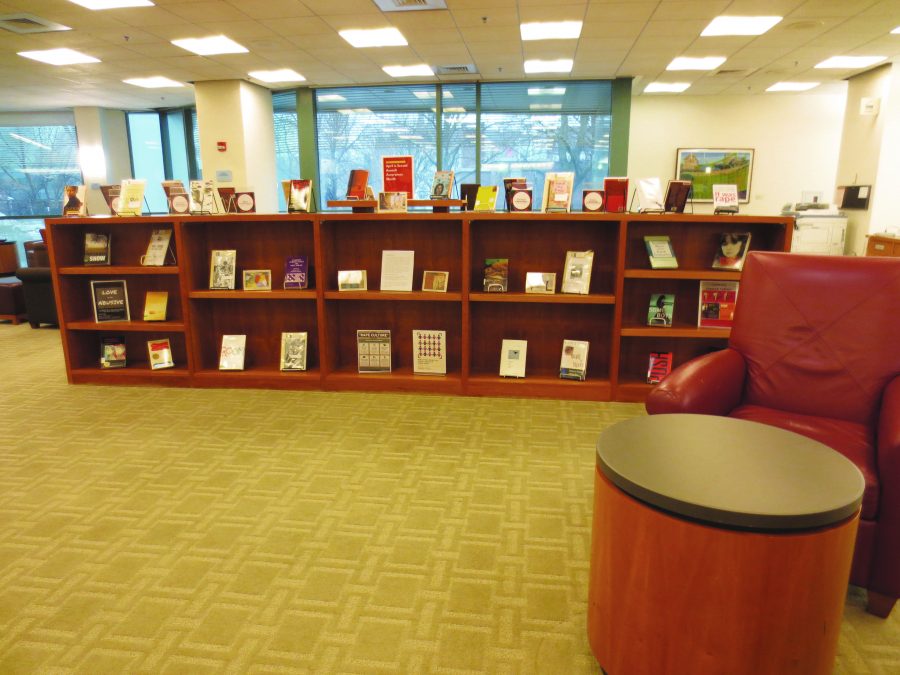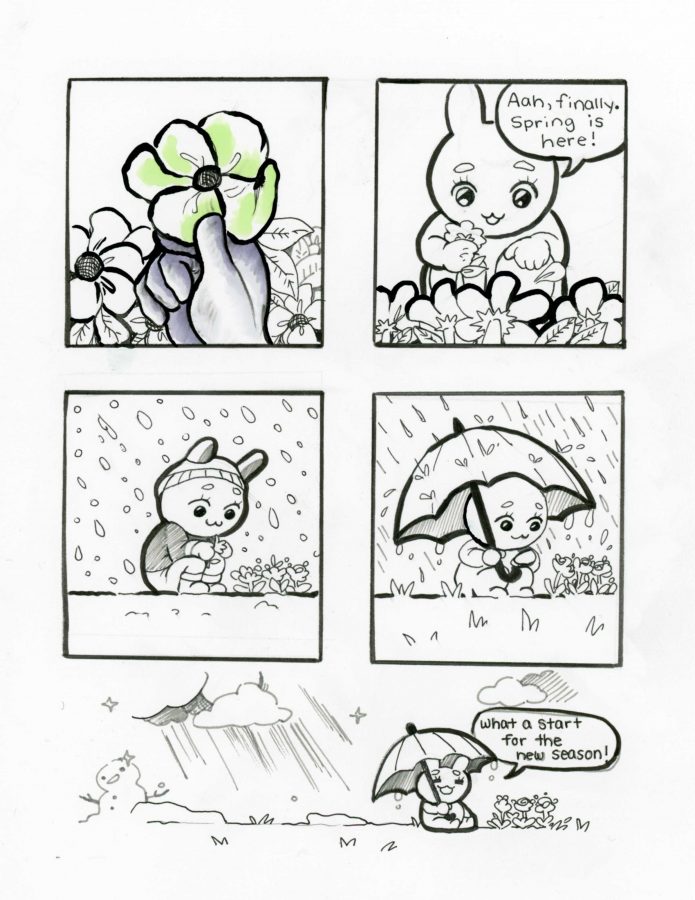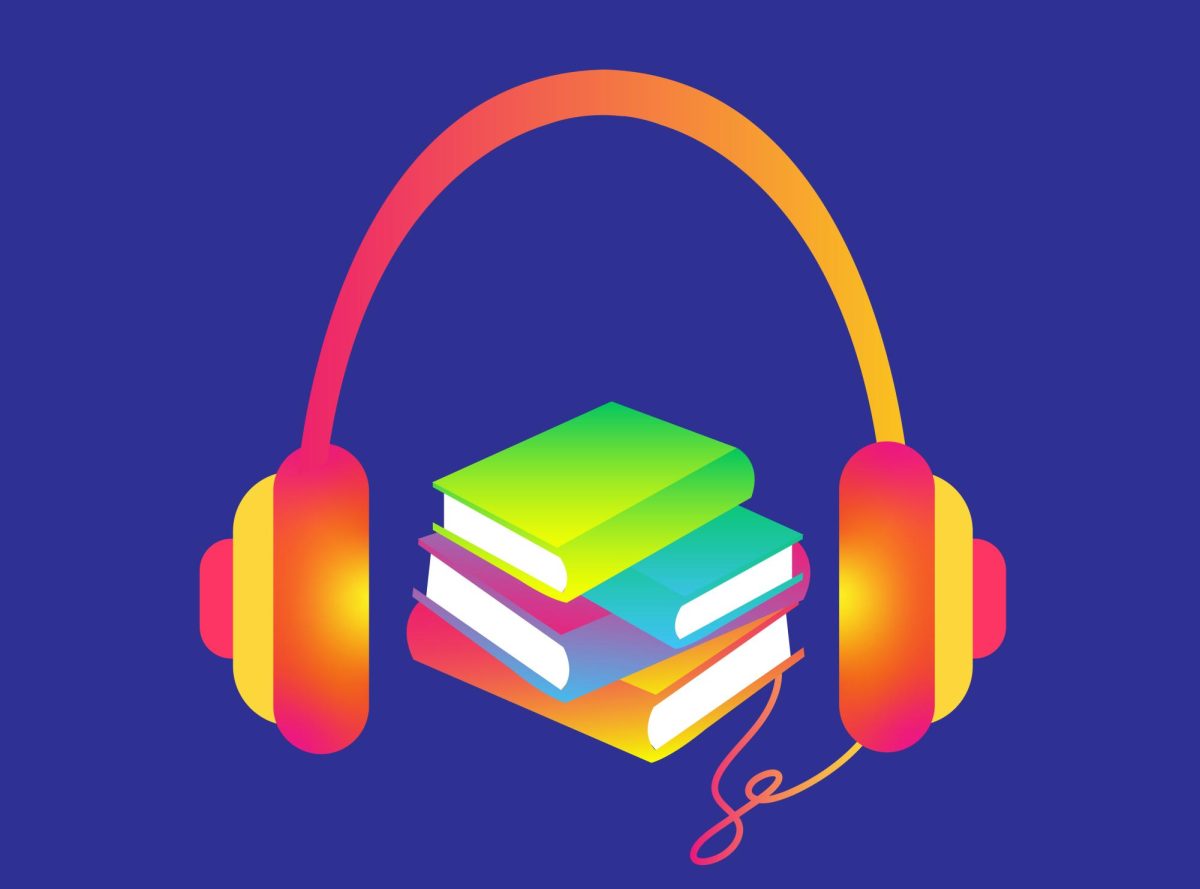By Jessie Kuenzel
Staff Writer
Between homework, classes, student organizations, internships, jobs, and fulfilling the unavoidable desire to have amazingly-fun-but-probably-also-slightly-inadvisable adventures that comes with being in our early-adult years, we’re lucky if we find time in our schedules to get a good night’s sleep let alone time to sit down and relax for a while.
 College students learn quickly that, without finding a way to decompress and escape the many pressures of school, the stress can quickly become overwhelming.
College students learn quickly that, without finding a way to decompress and escape the many pressures of school, the stress can quickly become overwhelming.
Whether it’s sitting down to binge-watch a few episodes of your favorite show on Netflix, curling up with a good book and a steaming hot cup of tea—although I’m more of a hot cocoa kind of girl myself—or going for a run while jamming out to your favorite tunes, everyone has their own methods of distracting themselves from work and responsibility for a while.
Personally, I’m the book-reading type; there’s just nothing better than feeling all your stress and worry melt away as you escape into a reality built solely from letters and punctuation. I know I’m not alone in feeling this way, reading has been a favored pastime of millions since the invention of the novel itself, but—and maybe I’m more in the minority here—as exciting as finding a great new story can be, my favorite way to spend my downtime is to pick up one of my old favorites and re-read it.
There’s just something indescribably comforting and peaceful about opening the pages of a familiar story, like that first moment when you crawl into your own bed after a long trip away from home and you just feel all the tension start to lift away.
Stories can play an essential role in our lives, shaping who we are and how we look at the world. Even years later, I can easily name the books I read as a child and teenager that have very significantly impacted who I am today.
Everyone has books that hold special places in their heart: the childhood book that first got themreally hooked on reading; the fantastical tale of magic and monsters that captured their imagination, and kept them up way past bedtime as they read by the light of a flashlight under the covers; the coming-of-age story that spoke so profoundly to their teenage selves; or the 19th-century novel that they thought they’d hate when it was assigned in high school English class, but whose gothic prose resonated with them in the timeless way that only classics can.
Yet as we grow older, reading somehow shifts from the fun activity it used to be into this great burden of responsibility that we carry around with us. We spend our lives being trained to read “responsibly” for work and school, and that seriousness often transfers over into our idea of reading for pleasure. Even those of us who are serial pleasure-readers can sometimes fall victim to the fallacy that reading as an adult has to be “productive.”
Somewhere along the line, we get this entirely misplaced idea that if we aren’t reading something new, we’re “wasting time,” that re-reading an old favorite would be irresponsible in the face of all the “new” literature we could be enjoying.
Even though I’m one of the most avid re-readers you’ll meet, I find myself stuck in this mindset all the time. I guilt myself into picking up something new when all I really want to do is sit down with my ten-year-old copy of Brian Jacques’ “Redwall.”
And no matter how good the new book is, I’m just sitting there looking at but not really reading the words while mentally kicking myself because all I really want is to is read my beloved story about a group of anthropomorphic monastery-inhabiting mice who fight off bloodthirsty rats, but “damn it, I’m an adult, and adults read new, grownup books, not just the same things from when they were twelve!”
After years of forcing myself to read books that—although they were good—simply weren’t what I wanted them to be, I’ve finally realized that reading and re-reading fill totally different needs, and they can very easily coexist peacefully in my reality without one making me feel miserable, or the other making me feel guilty.
Reading is thrilling. It’s a whirlwind of new people and places, it keeps you on the edge of your seat, and it’s tons of fun, but it isn’t always relaxing. Getting comfortable in a book’s new world takes getting used to; it requires time to adjust and settle in.
If reading is an adventure to unfamilar lands, re-reading is leisurely a stroll through your favorite park. Re-reading is comforting and cozy; it’s catching up with old friends and revisiting fond memories.
There are times when a good nail-biting adventure is exactly what I want, and sinking my teeth into a great new book is the most satisfying thing in the world. But between the pressures of classes, work, and just everyday life, more often than not I simply don’t have the energy for any kind of adventure—even one that takes place in the pages of a book.
When I’m stressed, sad, tired, or just in need of a good pick-me-up, opening up a book and sliding into a story that I know and love is the perfect medicine.
Tom Lamont, a writer for “The Guardian” explained it best: “Rereading is therapy, despite the accompanying dash of guilt, and I find it strange that not everybody does it. Why wouldn’t you go back to something good? I return to these novels for the same reason I return to beer, or blankets or best friends.”
Not every book we pick up has to expand our horizons or build our vocabularies. Sometimes reading can—and should—be about nothing more than taking a much-needed break from reality.
So if you’re looking for another good addition to your de-stressing activity list, might I recommend digging out that one novel you loved so much in high school, and settling yourself in for a nice long session of re-reading? You already know you like the story, and you might be surprised at how satisfying the experience is.



















